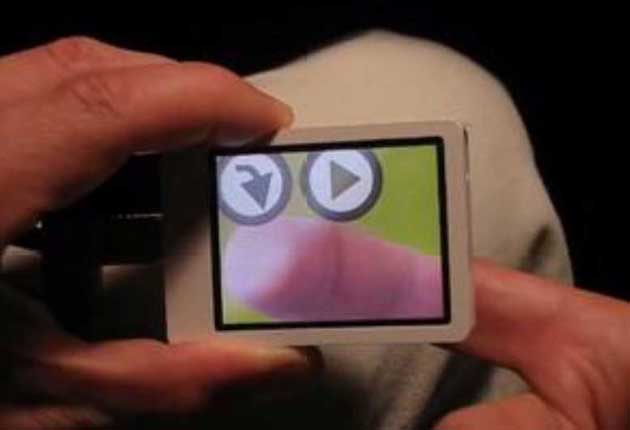Rhodri Marsden: There are big changes to come – in tiny packages
Cyberclinic

Your support helps us to tell the story
From reproductive rights to climate change to Big Tech, The Independent is on the ground when the story is developing. Whether it's investigating the financials of Elon Musk's pro-Trump PAC or producing our latest documentary, 'The A Word', which shines a light on the American women fighting for reproductive rights, we know how important it is to parse out the facts from the messaging.
At such a critical moment in US history, we need reporters on the ground. Your donation allows us to keep sending journalists to speak to both sides of the story.
The Independent is trusted by Americans across the entire political spectrum. And unlike many other quality news outlets, we choose not to lock Americans out of our reporting and analysis with paywalls. We believe quality journalism should be available to everyone, paid for by those who can afford it.
Your support makes all the difference.In the world of technology, it doesn't take much for speculation to become a fast-moving news story; in the past year, teams of bloggers in relay brought us news that Microsoft were about to buy Yahoo (they weren't) or that Apple CEO Steve Jobs had suffered a heart attack (he hadn't).
But many of the current will-they-won't-they debates should be settled in the next couple of weeks, with Macworld Expo starting in San Francisco on Monday, and the Consumer Electronics Show in Las Vegas three days later. Both Apple and Microsoft are set to launch operating systems this year; Apple has poetically named its "Snow Leopard", while Windows will have the more austere moniker of "7", and will hopefully clear up some of the mess left by the much-derided Vista. Vista's failure to solicit anything other than mild contempt has left many PCs still running on XP – now more than seven years old. But regardless of these woes and a declining market share, Windows will inevitably continue to drive around 90 per cent of the world's computers.
Apple, however, will maintain its iron grip on the MP3 and smartphone markets. The imminent launch of Nokia's N97 phone is seen by many as too little, too late in terms of producing an "iPhone killer", but phones running on Google's Android operating system (and Sony's in particular) may cause more of a stir. Microsoft is predicted to launch a phone based on its Zune MP3 player at some point in 2009 – but we haven't even seen the Zune itself yet; that's supposed to arrive in the UK in the next few months, with the phone possibly trailing behind at some point later in the millennium.
We're also still waiting for a UK launch of Amazon's electronic reader, the Kindle – the product most likely to produce an "iPod moment" for books. When Amazon finally manage to negotiate its content delivery system with European ISPs, we might get our hands on the thing; the publishing industry will be watching nervously – but the panicking music industry probably recall a state of nervousness with some affection.
No one really knows whether Apple's anticipated removal of digital rights management from songs in the iTunes store will provide a boost for record labels or continue to drive them into the ground – but a more obvious threat is posed by the online digital jukebox, Spotify. Much-acclaimed, its imminent move out of beta status has the potential to entirely reshape the way we consume music. Other developments might seem more mundane, but will considerably boost computing power. We should see the first implementations of USB3 in the next year – 10 times faster than USB2, and enabling us to shunt a CD-R's worth of data per second between devices. The slick, speedy, solid-state drives (SSDs) that we're seeing in the iPod touch and the newest Mac laptops will start to become the norm as capacity boosts and prices drop.
But the main watchword for next year is "small". Desktops shrink to mini-desktops, laptops replaced by netbooks ... and if you're looking at your iPhone and wondering how it could possibly be scaled down any further and still be operable by your stubby index finger, Microsoft is riding to the rescue with its new "nanoTouch" system. The trick? Your fingers control the screen from around the back, allowing you to hit targets 2mm across on a screen smaller than 1cm wide. Get those magnifying glasses ready for 2009.
Join our commenting forum
Join thought-provoking conversations, follow other Independent readers and see their replies
Comments